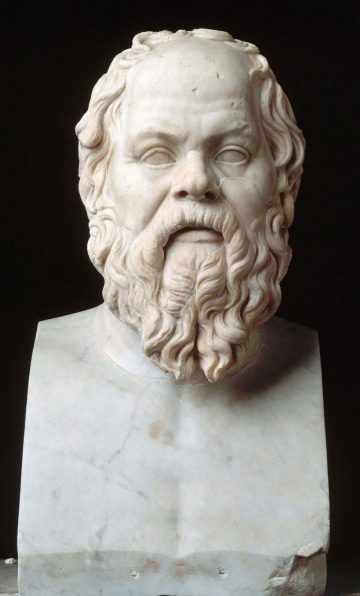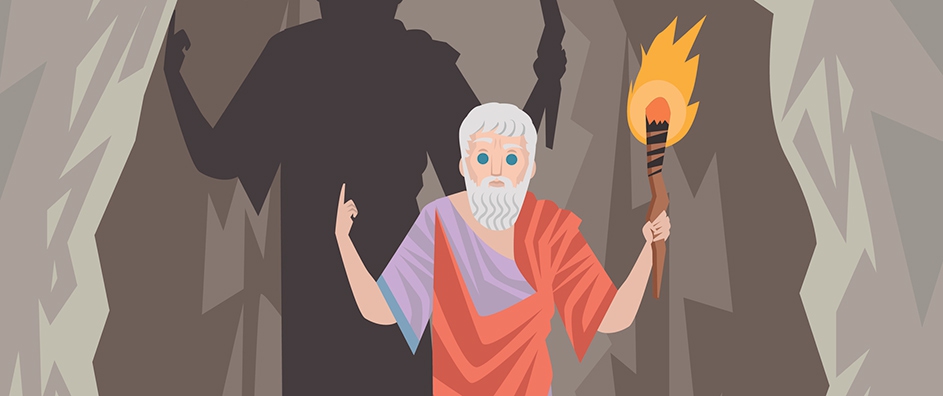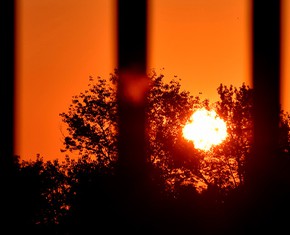The views expressed in our content reflect individual perspectives and do not represent the authoritative views of the Baha'i Faith.
How can individuals live in harmony? This question, one of humanity’s most important ones, has always intrigued philosophers and prophets.
Plato said that as with the state, for example, the overriding principle of justice in the individual is the harmony produced when one abides by the rule of propriety, each constituent faculty of the individual doing that for which it is best suited, with the whole organism striving harmoniously toward a unified objective.
By analogy, the rational mind, like the rulers or guardians of the state, makes major decisions about personal goals and the proper course of action for fulfilling those aspirations. The body, like the military in the state, defends the physical edifice, and so on:
Only when he has linked these parts together in well-tempered harmony and has made himself one man instead of many, will he be ready to go about whatever he may have to do, whether it be making money and satisfying bodily wants, or business transactions, or the affairs of state … Any action which tends to break down this habit will be for him unjust … – Plato
In the context of this analogy, injustice or lack of harmony is defined by a lack of due respect of each part for the others—or the violation of the law of propriety—so that there is disharmony among our human faculties. Such disharmony might occur, for example, if we allow lesser powers, such as our passions, to usurp the governing authority of the mind. Likewise, such discord and “injustice” occurs when we allow ourselves to become fragmented in such a way that we are in a condition of internal warfare or turmoil. Injustice is thus a violation of internal propriety and harmony.
For Plato the logical result of maintaining harmony and propriety is progressive enlightenment. Just as the political state cannot remain static, neither can the individual.
Likewise, what keeps the state in forward motion is the guidance of the whole toward the objectives that the guardians (or philosopher-kings) have perceived as a result of their enlightenment. In the individual the mind must gain insight and then discover the best means of translating insight into beneficial action.

Socrates
To demonstrate how human spiritual progress takes place, Socrates, in Book VII of The Republic, uses an analogy that explains his theory of “forms” in his famous allegory of the cave. In this analogy Socrates portrays men bound to chairs in a cave and facing a wall. Behind and above them is the mouth of the cave, in front of which people pass by. The analogy gets more complicated than that, but let us simplify the process a bit. A fire outside the cave causes the passing figures to cast shadows on the wall of the cave so that the bound prisoners, who cannot turn to see the source of the shadows, naturally conclude that what they see is reality.
Among the prisoners in the cave is one who is dissatisfied with his constraints, who so yearns for knowledge and enlightenment that he breaks free from his bonds and turns to see the source of the images. Through great effort he scales the rough walls of the cave and discerns the source of the shadows, the figures themselves. Then he sees that the fire behind them casts the shadows on the walls.
Not satisfied that he has discovered the ultimate expression of reality, he ventures forth from the cave into the sunlight, but the brightness of the sun forces him to look at the ground and shade his eyes. There he notices the shadows of trees and other objects, which he now perceives to be reality. But as his eyes become accustomed to the light, he is able to look up and see the objects themselves and realize that they are a higher expression of reality than the mere shadows they cast upon the ground.
Ultimately this determined man lifts his eyes to the heavens and beholds, above and beyond all objects, the sun itself, the source of all reality:
He would need, then, to grow accustomed before he could see things in that upper world. At first it would be easiest to make out shadows, and then the images of men and things reflected in water, and later on the things themselves. After that, it would be easier to watch the heavenly bodies and the sky itself by night, looking at the light of the moon and stars rather than the Sun and the Sun’s light in the day-time. . . .
Last of all, he would be able to look at the Sun and contemplate its nature, not as it appears when reflected in water or any alien medium, but as it is in itself in its own domain.
Having attained this immensely increased level of perception about the relationship between reality and the sun (or the “Good”) as the source of reality, this specially endowed individual—one whom Socrates calls the “philosopher-king”—must now accomplish another difficult part of his task. Having become enlightened—and “delighted” with his newfound knowledge—this noble soul realizes that if he himself is to be virtuous, he must share what he has learned. He determines that he must return to the cave to assist those still imprisoned in the darkness of illusion and shadow.
When he descends into the cave, his eyes have trouble becoming accustomed to the darkness with this sudden transition from bright sunlight into a world of darkness and shadow. To the prisoners in the cave the messenger of truth, the philosopher-king, seems clumsy and awkward to them, hardly a wise teacher returned to guide the others:
Coming suddenly out of the sunlight, his eyes would be filled with darkness. He might be required once more to deliver his opinion on those shadows, in competition with the prisoners who had never been released, while his eyesight was still dim and unsteady; and it might take some time to become used to the darkness. They would laugh at him and say that he had gone up only to come back with his sight ruined; it was worth no one’s while even to attempt the ascent. If they could lay hands on the man who was trying to set them free and lead them up, they would kill him.
The allusion to the killing of the philosopher-king poignantly foreshadows Socrates’ own execution for his teachings, as well as the appearance, suffering and execution of the prophets of God—and the existence of a spiritual life beyond the physical one:
… Socrates the wise believed in the unity of God and the existence of the soul after death; as his opinion was contrary to that of the narrow-minded people of his time, that divine sage was poisoned by them. All divine philosophers and men of wisdom and understanding, when observing these endless beings, have considered that in this great and infinite universe all things end in the mineral kingdom, that the outcome of the mineral kingdom is the vegetable kingdom, the outcome of the vegetable kingdom is the animal kingdom and the outcome of the animal kingdom the world of man. The consummation of this limitless universe with all its grandeur and glory hath been man himself, who in this world of being toileth and suffereth for a time, with divers ills and pains, and ultimately disintegrates, leaving no trace and no fruit after him. Were it so, there is no doubt that this infinite universe with all its perfections has ended in sham and delusion with no result, no fruit, no permanence and no effect. It would be utterly without meaning. They were thus convinced that such is not the case, that this Great Workshop with all its power, its bewildering magnificence and endless perfections, cannot eventually come to naught. That still another life should exist is thus certain, and, just as the vegetable kingdom is unaware of the world of man, so we, too, know not of the Great Life hereafter that followeth the life of man here below … Numerous and conclusive proofs exist that go to show that this infinite world cannot end with this human life. – Abdu’l-Baha, Tablet to August Forel, pp. 13-14.
















Comments
Sign in or create an account
Continue with Googleor